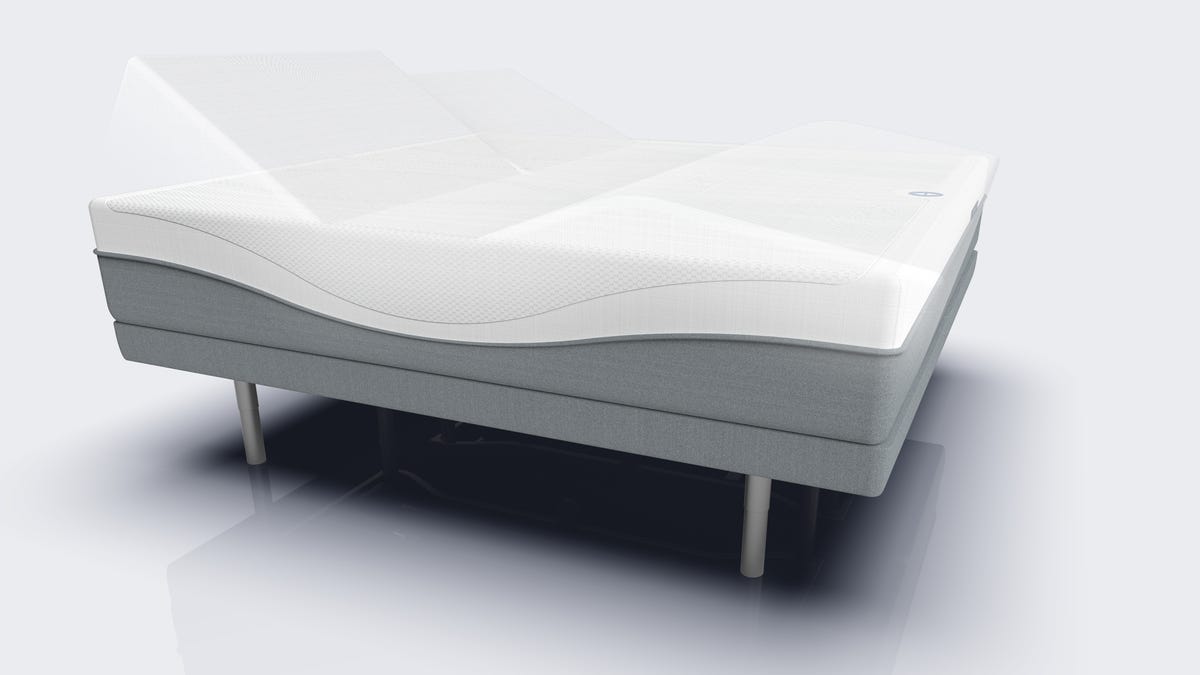Sleep Number's new 360 Smart Bed wants to help you stay healthy as you age
Improved sensors, artificial intelligence and compatible furniture add-ons help the mattress create a better sleep environment for you, and it adjusts as your needs change.

Sleep Number is synonymous with sleep tech, and the company is back at it again with new products, including new furniture, designed to tap science and technology to improve your nightly sleep and overall health, especially for aging adults.
At this week's CES 2022 in Las Vegas -- five years after the original Smart Bed 360 was unveiled -- the company announced its newest Smart Bed 360 and furniture to go with it.
Sleep Number said it analyzed 13 billion hours of sleep data to make the newest edition of the 360 Smart Bed better at sensing and delivering information about your sleeping patterns, what they mean for your health and what you can do to improve them. The company even sees a future in which the new 360 Smart Bed is able to alert you about possible risks of illnesses or conditions based on your nightly sleep patterns and data.
The new Sleep Number 360 Smart Bed mattress uses artificial intelligence and machine learning to monitor your sleeping patterns, detect changes or possible red flags and offer actionable advice to a person or caregiver that can improve conditions. The Smart Bed 360 will adjust to your body as you move through life changes, and insights provided may be more impressive than you expect. The company said that the mattress could someday detect important health conditions like sleep disorders or cardiac issues, but it doesn't yet have FDA clearance to do so. If this is true, this would make the bed's technology fairly impressive.
Here's what is new with the upcoming Smart Bed 360:
- New multi-sensor technologies
- Improved software capabilities
- New AI and machine learning algorithms
- High-tech textiles, antimicrobial properties
- Graphite infused foam that "moves air" through the sleep surface to keep you comfortable
- Compatibility with new add-on accessories like lights and mobility aids
You expect software updates and improved technology in a product upgrade reveal, but the add-on furniture is a newly introduced concept that I think is the main differentiator between this and the original Smart Bed 360. With the accessory add-ons, it just makes sleeping and lounging a more comfortable experience.
Here's a full list of the features of the new furniture you can add to your Smart Bed 360:
- Mobility aids for help getting in and out of bed
- Individual audio and noise reduction technology
- Ambient lighting for circadian rhythm
- Individual adjustable reading lights
- Integrated charging and storage pocket
If you bought all the furniture, it would look like a souped-up bed frame fit with shelves and lighting. The purpose, however, is to create a better sleep environment for sleepers with more specialized needs or those in later life stages.
Sleep Number's 360 smart beds will be available in 2023, and prices will start at $1,099. Prices for furniture haven't yet been released.

